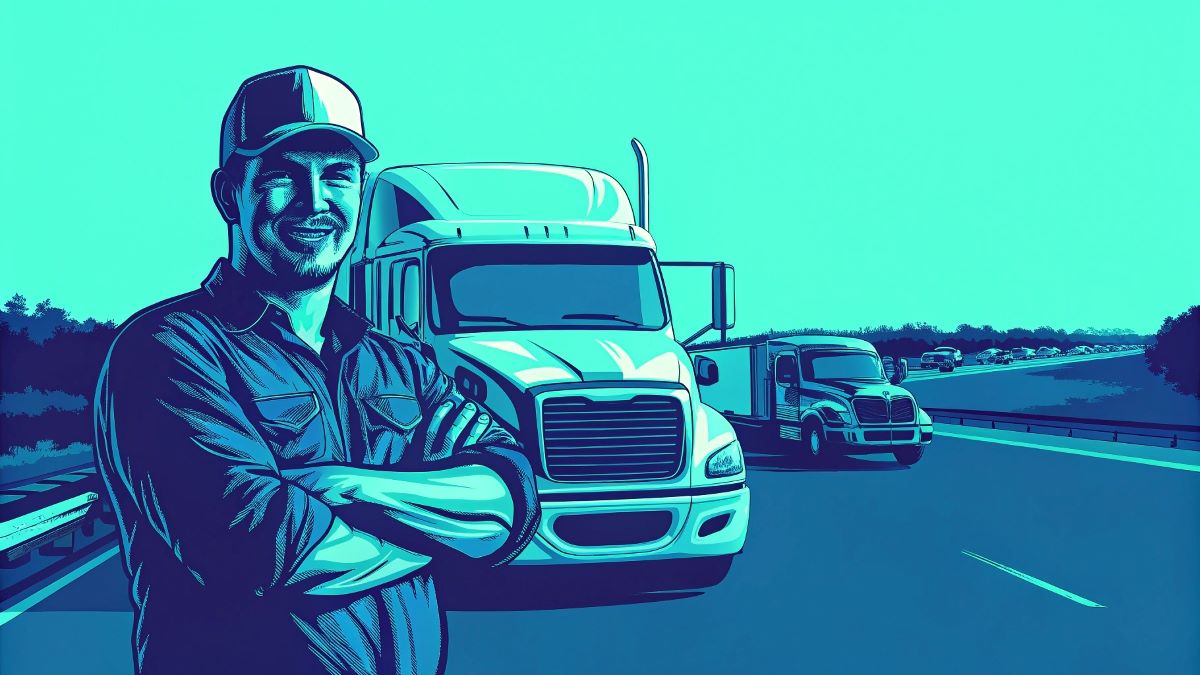Trucking as a Small Business: Why It’s One of America’s Most Profitable Paths to Ownership
Your Route to Financial Freedom: Building Wealth One Mile at a Time

When most people think of small businesses, they picture a cozy coffee shop, a family-owned hardware store, or a local bakery.
Rarely does the image of an 18-wheeler hauling freight down the interstate come to mind. Yet, for thousands of Americans, trucking is not just a job – it’s a business.
And not just any business, but one of the most accessible and potentially lucrative paths to entrepreneurship in the country.
The Road to Ownership Starts with the Wheel
One of the most compelling aspects of trucking as a business is how attainable it is. Unlike many industries that require years of education, licensing, or startup capital, trucking offers a clear and relatively short path to ownership. You can learn more at truckstaff.us.
With a commercial driver’s license (CDL), which can often be earned in a few months, an aspiring entrepreneur can hit the road as a company driver. Many truckers start this way to gain experience, save money, and learn the ins and outs of the industry.
From there, becoming an owner-operator – buying or leasing a truck and running your own business – is the next natural step.
Profit Potential: High Revenue, Manageable Overhead
Trucking can be remarkably profitable. According to industry data, the average owner-operator grosses between $150,000 to $250,000 annually.
After expenses, net income can range from $50,000 to $100,000 or more, depending on routes, freight type, and business savvy.
What makes trucking especially appealing is the manageable overhead. Beyond fuel, maintenance, insurance, and licensing, the primary investment is the truck itself.
Unlike brick-and-mortar businesses that come with rent, utilities, and staff salaries, a trucking business often operates from the cab of the truck and a home office.
American Trucking Industry
Comprehensive Statistics & Economic Impact
Freight Transportation by Weight (2022)
(2023 Preliminary)
(2023 Preliminary)
(2022)
(2022)
Tax Contributions (2022-2024)
Employment Impact (2023)
(+0.3% from 2022)
Motor Carrier Companies (577,000+ Total)
International Trade (2023)
Cost Leverage: Competitive Parts Keep Costs Low
A robust aftermarket for heavy-duty components gives small trucking businesses real pricing power—and that translates directly into profit.
With multiple suppliers competing on quality, warranty, and delivery speed, owner-operators can standardize parts, negotiate volume rates, and keep cents-per-mile maintenance costs predictable. Online catalogs, core-return credits, and reman options further stretch budgets without sacrificing reliability, while quick ship times reduce costly downtime.
Partnering with reputable specialists such as LILY Bearing helps lock in consistent performance and availability, turning repairs from margin killers into planned, controllable expenses.
Demand on the Rise
The pandemic underscored the vital role trucking plays in the U.S. economy. With the surge in e-commerce and supply chain complexity, the need for freight transport is higher than ever.
The American Trucking Associations (ATA) reports that trucks move over 70% of all freight in the U.S., and there is a significant driver shortage – a gap of over 80,000 drivers in 2024.
This shortage spells opportunity. Independent truckers and small fleet owners are in a prime position to fill the gap, negotiate better rates, and build thriving businesses.
Flexibility and Control
Another reason trucking appeals to aspiring small business owners is autonomy. As an owner-operator, you control your schedule, choose your loads, and decide where and when to run. This level of independence is rare in most industries.
You also have the flexibility to expand – many truckers grow their business by adding more trucks and hiring drivers, evolving from a one-person operation into a full-fledged fleet.
The Challenges Are Real – But So Are the Rewards
Of course, trucking isn’t without its challenges. Fuel prices fluctuate, regulations change, and long hours on the road can take a toll.
But for those with a strong work ethic, discipline, and a willingness to learn the business side – from dispatching and invoicing to negotiating with brokers – the rewards can be significant.
Programs and support networks also help new entrepreneurs succeed. Many states offer small business development centers, and veteran truckers often mentor newcomers through forums and associations.
Final Thoughts: A Business Built on Grit
In a country that values independence and drive, trucking represents the spirit of American entrepreneurship. It’s not glamorous, but it’s real – and for many, incredibly rewarding. With relatively low barriers to entry, strong demand, and high earning potential, trucking stands out as one of the most practical and profitable paths to business ownership today.
Whether you’re looking for a career change, financial freedom, or simply a way to be your own boss, trucking might just be your road to success.
